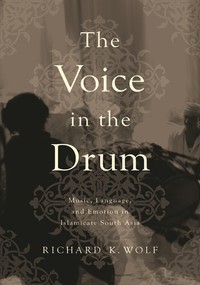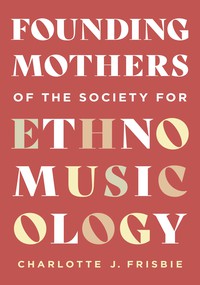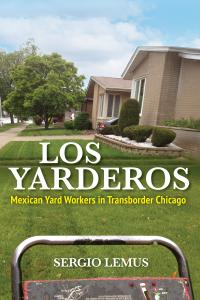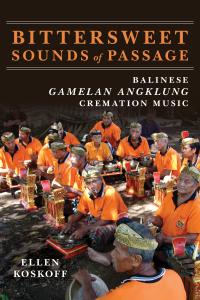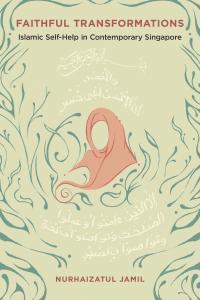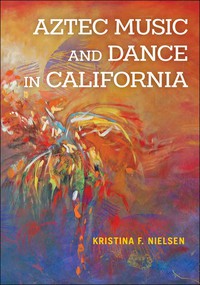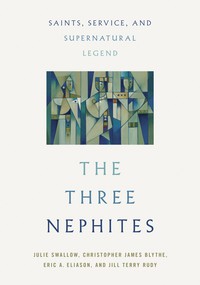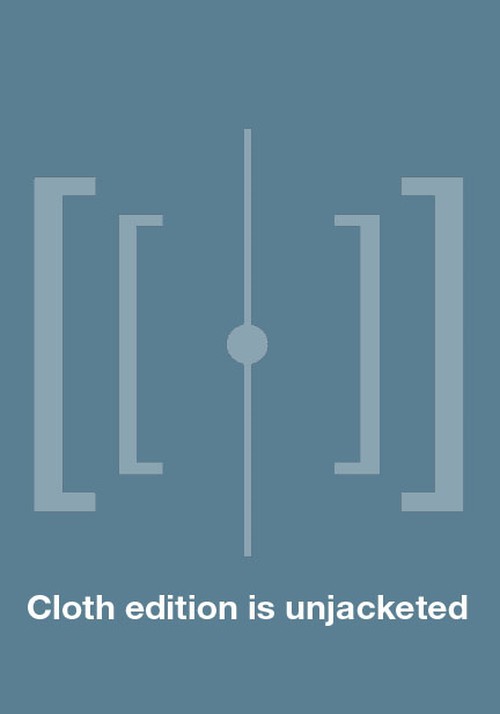
The Black Cow's Footprint
About the Book
A black cow leads the members of a South Indian hill tribe, the Kotas, to the Nilgiri Hills and, with its hoof, indicates where to found each village. This footprint acts as a moral center of gravity, an important place for music-making, dancing, and other rituals. Places such as this, and moments in time, serve as physical and moral “anchors” for the Kota community. In this book, Richard K. Wolf explores how the Kotas “anchor” their musical and other activities around places and significant moments in time and, in the process, constitute themselves as individuals and as a group. This volume also includes a CD of Richard Wolf’s Kota field recordings.* Supported by the Clark and Cooke Funds, Harvard University
Reviews
"A highly original and important publication that will be of interest to students and scholars of ethnomusicology, anthropology, and South Asia."--Journal of Asian Studies"This book represents a significant contribution to the field of ethnomusicology. In bringing equal rigor to both the anthropology and the musicology, Wolf contributes importantly to the theory of the subject."--Ethnomusicology
"The Black Cow's Footprint is a much-needed and extremely valuable addition to the limited ethnomusicological literature on Indian tribal peoples. The comprehensive glossary and detailed index add to the monograph's value for ethnomusicologists, anthropologists, and others who will be drawn to Wolf's careful ethnography and multifaceted analysis."--Journal of Folklore Research
"The wealth of data here is remarkable. . . . A signal contribution to South Asian ethnomusicology, as well as to the field of Indian tribal studies specifically."--World of Music
"[Wolf] presents us with one of the most detailed accounts of musical performance in any small Indian community; and is able to site it functionally within the social contexts of daily life and ritual activities."-- Journal of the Royal Anthropological Institute
Blurbs
“The best example of ethnomusicological thought in a very long time. Wolf builds a uniquely inflected model of spacetime that is both a representation of and an agent for the highly integrated totality of the Kota worldview. . . . A remarkable work whose intensity is unrelenting, and whose intelligence richly rewards the closest possible reading. It will establish Richard K. Wolf as one of the prime intellects within ethnomusicology.”--James Kippen, author of The Tabla of Lucknow: A Cultural Analysis of a Musical Tradition
Awards
Winner of the 2005 Edward Cameron Dimock, Jr. Prize in the Humanities of the American Institute of Indian Studies.Supplemental Material
1. Guṛy terdd koḷ (temple-opening tune) as rendered by Kaṇṇan and one other man for the "cane and bamboo ritual" in Kolmēl, Jan., 2001. Exhibits relatively flexible points of melodic return compared with recordings of K. Puccan, especially from the 1970s. (see 2, 47, 129, 143, 193)
| |
|
2. "Lamp, lamp, where are you?" Women singing at god ceremony, Kolmēl, Jan. 12, 2001. (see 7, 52, 87)
| |
|
3. High-pitch tremolo, excerpt, K. Puccan and Veḷn rendering the guṛy terdd koḷ, 1970s. (see 8, 194)
| |
|
4. "Bier lighting tune" (tic iṭ koḷ), Feb. 4, 1992. (see 9, 175)
| |
|
5. Nāṛ gūc koḷ (veyḷ mīn koḷ, morning star tune), rendered on koḷ by S. Raman, dry funeral, Mēnāṛ, Jan. 24, 1992. (see 9, 208)
| |
|
6. Vatm iṭ koḷ (millet pouring tune), demonstrated by K. Puccan on the koḷ, Dec. 31, 1991. (see 9, 179, 209)
| |
|
7. "En aṇṇe aṇṇe" (my older brother), an āṭḷ rendered by V. Mathi, May 27, 1992. (see 52)
| |
|
8. Guṛy terdd koḷ (temple opening tune) as rendered by K. Puccan and Veḷn. Recorded by Dr P. Varadharajan, 1970s. See Fig. 10. (see 143)
| |
|
9. "En aṇ caḷo," rendered on bugīr by K. Mundan, June 8, 1992. See Fig. 8. (see 22, 51, 116, 118)
| |
|
10. Guṛy terdd koḷ (temple opening tune) as rendered vocally by K. Puccan, Dec. 23, 1991. (see 22, 113, 143)
| |
|
11. Koḷ solo: Kāl gūc āṭ (leg joining dance). Fancy version played onlyon the pacāl, demonstrated by K. Puccan, Dec. 23, 1991. (see 23, 71)
| |
|
12. Beṭṭa Kurumba instrumental music, with percussion equivalent of Kota cādā dāk. Madan, koḷaḷ (shawm); tambaṭe (frame drum), davil (cylinder drum). Recorded in Gudulur town, Nov. 1, 1992. Demo courtesy ACCORD (Action for Community Organisation, Rehabilitation and Development). (see 39)
| |
|
13. Tiruganāṭ dāk—a percussion pattern, presented here in conjunction with women’s dance melody, god ceremony, Kolmēl, Jan. 8, 2001. See Fig. 3. (see 41, 43, 45, 47)
| |
|
14. Koḷāḷ dāk—a percussion pattern for non-Kota deities, performed here by Kurgōj musicians for goddess Sikkamman, Ooty, Aug. 12, 1991. (see 49)
| |
|
15. Guṛy terdd koḷ (temple opening tune) demonstrated by S. Raman, koḷ, Kuy tēl (forest), Oct. 31, 1992. (see 143, 247n. 11 (51)
| |
|
16. Guṛy terdd koḷ demonstrated by S. Raman, pulāng solo, Kolm"ēl, April 25, 1991. (see 143, 247n. 11 (51)
| |
|
17. Pījl (bamboo jew’s harp) demonstrated by S. Cindamani, Jan. 15, 2001. (see 51)
| |
|
18. "Father, older brother, younger brother, listen!" God song composed and sung by S. Raman, Kolmēl, Aug. 8, 1992. (see 52, 54)
| |
|
19. "You, daughters of Kotas, stop crying!" Composed by A.K. Rangan, sung by P. Kamatn, Kolmēl, May, 1992. (see 57)
| |
|
20. "Kavdayō," aṭḷ rendered by R. Mathi, Kolmēl, May 1992. (see 52, 59–63, 255n. 9 (174)
| |
|
21. "They shot the hunting bow," god song sung by Pa. Mathi, Kolmēl, Dec. 28, 1991. (see 52)
| |
|
22. Kalgūc āṭ koḷ ("leg joining dance tune"). Ordinary version, with drummed accompaniment in cādā dāk, Kolmēl, Jan. 10, 1992. (see 71)
| |
|
23. "Stone field, thorn field, Kanm father," āṭḷ rendered by Pa. Mathi, Feb. 11, 1992. (see 52, 85–6, 256n. 9 (174)
| |
|
24. Sounds from the Kuytēl, a forest near Kolmēl, Oct. 31, 1992. (see 89)
| |
|
25. Duryodhana (R. Kamaṭn) doing bird and animal imitations and storytelling: (1) karvaky bird; (2a) crow (ill omen sound); (2b) ordinary sound; (3) owl, inauspicious sound (4) pemaṇḍvaky (bird, auspicious sound); (4a) story of hunter and pemaṇḍvaky; (5a) dog bark (good sign); (5b) dog howl (bad sign), Jan. 2001. (see 89)
| |
|
26. "18 god-calling tune" (padneṭ devr ātd koḷ), in tiruganāṭ dāk, rendered on koḷ by K. Puccan and S. Raman, god ceremony, Kolmēl, Jan. 12, 1992. Note melodic similarity to "Little father god tune" (CD 39). (see 111, 179)
| |
|
27. "En aṇ caḷo," āṭḷ rendered by S. Cindamani, June 7, 1992. See Fig. 7. (see 52, 116, 117, 121, 122, 256n. 9 (174)
| |
|
28. Dr P. Varadharajan vocalizing drum sounds, Jan. 13, 2001. (see 126)
| |
|
29. Guṛy terdd koḷ rendered by Kaṇṇan and one other man, god ceremony, Kolmēl, Jan. 9, 2001. (see 129, 143)
| |
|
30. Guṛy terdd koḷ rendered by K. Puccan and S. Raman, god ceremony, Kolmēl, Jan. 12, 1992. (see 143)
| |
|
31. "āḷ āṛāde arvangāṛe," āṭḷ rendered by Māgāḷi, mundkānōḷ of Kināṛ village, May 3, 1991. (see 52)
| |
|
32. Aṇviṛcd koḷ (channel-clearing tune) recorded on wax cylinder by David G. Mandelbaum, May 1938 (Mandelbaum 1938). Note similarity to temple opening tune. (see 142, 143)
| |
|
33. The "hunting god tune" (vēṭkār cōym koḷ) rendered by K. Puccan and S. Raman, god ceremony, Kolmēl, Jan. 12, 1992. (see 151)
| |
|
34. A god tune from Kurgōj village, recorded by Nazir A. Jairazbhoy, April 14, 1975. (see 151)
| |
|
35. Transitions between tunes for first three men’s dances on the pacāl during the god ceremony, Kolmēl, Jan. 13, 1992: kālgūc āṭ, tiruganāṭ, cāda āṭ (length of each tune shortened to highlight transitions). Note use of kob at the beginning. (see 152)
| |
|
36. Ragi harvest song in Badaga language sung and played instrumentally by Kotas. First played on koḷ by P. Kamaṭn as example of Kota women’s dance tune in Ticgāṛ village; then words sung by P. Kamaṭn and Bēṛy Mathi. Laughing at the end due to Kamaṭn’s choice of (possibly improvised) words, June, 1991. XML_elements
| |
|
37. "Bacāna Bacavanīlo," one of the most common god songs, sung by women during the god ceremony, Kolmēl, Jan. 12, 2001. (see 52, 232)
| |
|
38. "Sixty cubit buffalo pen," āṭḷ rendered by Bēṛy Mathi, Aug. 10, 1991. (see 169, 169–70)
| |
|
39. "Little father god tune" (kunayṇōr koḷ), in cādā dāk, rendered by K. Puccan and S. Raman, god ceremony, Kolmēl, Jan. 12, 1992. Note melodic similarity to "18 god-calling tune" (CD 26). (see 179)
| |
|
Richard K. Wolf is Professor of Music and South Asian Studies at Harvard University and editor of Theorizing the Local: Music, Practice, and Experience in South Asia and Beyond.
